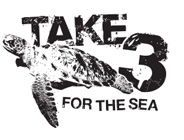Exposed! The true story of plastic packaging in our supermarkets
In a world grappling with the environmental impacts of plastic pollution, a recent report by the Australian Marine Conservation Society (AMCS) and the Boomerang Alliance has brought to light some concerning findings regarding the plastic footprint of Australian supermarkets. The audit, conducted to assess the extent of plastic use within these retail giants, reveals a complex picture that demands immediate attention.
The report exposes the staggering amount of plastic used by Australian supermarkets. From single-use plastic bags to packaging materials, the audit scrutinised the entire lifecycle of plastic products and noted the limited efforts made by some supermarkets in adopting sustainable alternatives, emphasising the urgent need for a paradigm shift in the industry’s approach to packaging.
Key findings of the report
- Most supermarkets are not transparent about their plastic footprint.
- Reuse and refill systems need to be scaled up urgently, to provide consumers with cost comparative options without unnecessary plastic packaging
- Leading supermarkets are not prioritising removal of plastic, over-relying on false solutions such as ‘lightweighting’ – making packaging lighter to claim plastic reductions.
- Loose fresh produce is frequently more expensive than plastic-packed produce, pushing consumers towards unnecessary plastic packaging, and penalises those who try to reduce their plastic consumption in a cost-of-living crisis.
- Supplier packaging guidelines are rarely enforced, allowing suppliers to use whatever packaging option is cheapest or easiest to print marketing material onto.
- Recycling and recycled content was the worst performing area of all assessed categories. In spite of the message coming from Australian supermarkets, little real progress has been made on increasing the recycled content in plastic packaging, diminishing recycling efforts and the vision of creating a circular economy for plastics in Australia.

What can we do?
As consumers, we play a vital role in driving change. By being informed about the plastic usage practices of supermarkets, we can make conscientious choices that collectively push these establishments towards adopting more sustainable practices. Here are a few actions we can all can take to contribute to the solution:
- Choose Wisely: Avoid buying plastic-wrapped food items at the supermarket. Instead, opt for products with minimal or eco-friendly packaging.
- BYOB (Bring Your Own Bag): A simple yet effective step is to carry reusable bags when shopping. This reduces the reliance on single-use plastic bags and helps minimize the environmental impact.
- Voice Your Concerns: Use your consumer voice to express concerns about excessive plastic use. Social media, petitions, and direct communication with supermarkets can amplify the call for change. It only takes 5 minutes to write an email to your usual supermarket chain asking them to use less plastic packaging. If enough of us do the same, the supermarkets will have to listen.
- Support Sustainable Brands: Favor products from brands committed to reducing their environmental footprint. If you can’t avoid buying some products that come in plastic, be sure to look for those that use recycled and recyclable materials.
- Engage Locally: Get involved in local initiatives aimed at reducing plastic waste. Join community clean-up events, advocate for plastic-free policies, and support businesses in your area that champion sustainable practices.

Last, but not least, Support Take 3: We are dedicated to tackling the problem of plastic pollution by inspiring human-sized actions that bring about planet-sized solutions. Join our movement, donate to help fund our work, and don’t forget to Take 3 pieces of rubbish with you when you leave the beach, waterway… or wherever.




